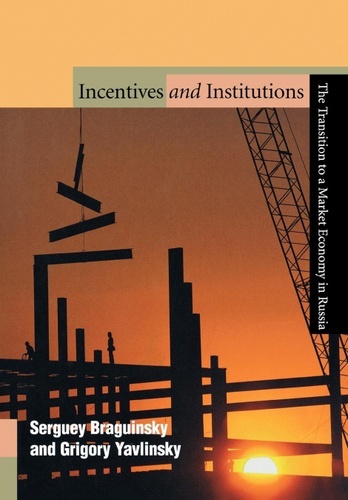Incentives and Institutions
The Transition to a Market Economy in Russia

Braguinsky, Serguey
Yavlinsky, Grigory
Editorial Princeton
Fecha de edición marzo 2000
Idioma inglés
EAN 9780691009933
296 páginas
Libro
encuadernado en tapa dura
Dimensiones 162 mm x 237 mm
Resumen del libro
Here, for the first time, two of Russia's leading economists provide an authoritative analysis of the transition to a democratic market economy that has taken place in Russia since 1990.
Serguey Braguinsky, a Russian economist with extensive international experience, and Grigory Yavlinsky, leader of the liberal "Yabloko" party and a major public figure in Russia, focus on the institutions that are critical to a successful transition and the economic incentives needed to make these institutions work.
Finally, they discuss in detail the specific components of the economic processes that are necessary for economic transition in general and they draw lessons that can be applied to other nations dealing with similar transitions.
In 1989, Grigory Yavlinsky became a member of the Commission for Economic Reform and wrote the groundbreaking "500 Day Plan," which outlined the first program of transition to a market economy.
Two years later, he co-wrote the program of strategic cooperation between the Soviet government and the West (known as the "Grand Bargain").
Here he and Serguey Braguinsky examine what went wrong with the Russian plan--and what is needed to put the economy back on the road to becoming a fully functioning market economy.
The first section of the book presents a new interpretation of the political economy of the socialist state and the incentives and institutions that underpin it, with an emphasis on the present Russian situation.
The second part deals with the political economy of "spontaneous transition" and the inefficiencies inherent in economies that lack the organizations and institutions that inhere in established Western democratic economies.
In the final section, the authors present a program of actions to put the economic transition in Russia back on track, based on their assessment of the actual current state of both the economy and the government.
Their approach is unique in emphasizing organizational evolution at the microeconomic level instead of stressing macroeconomic issues such as money and inflation that are at the heart of most arguments.
This is a thoughtful and thought-provoking book and one that will be widely discussed and debated.








